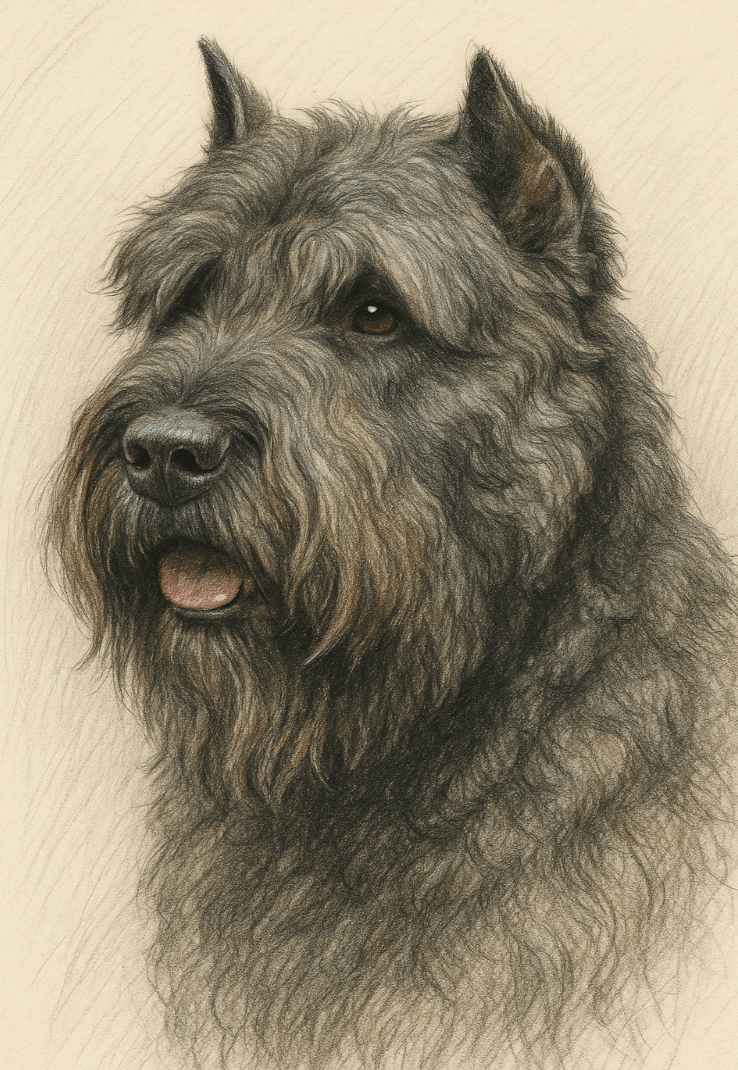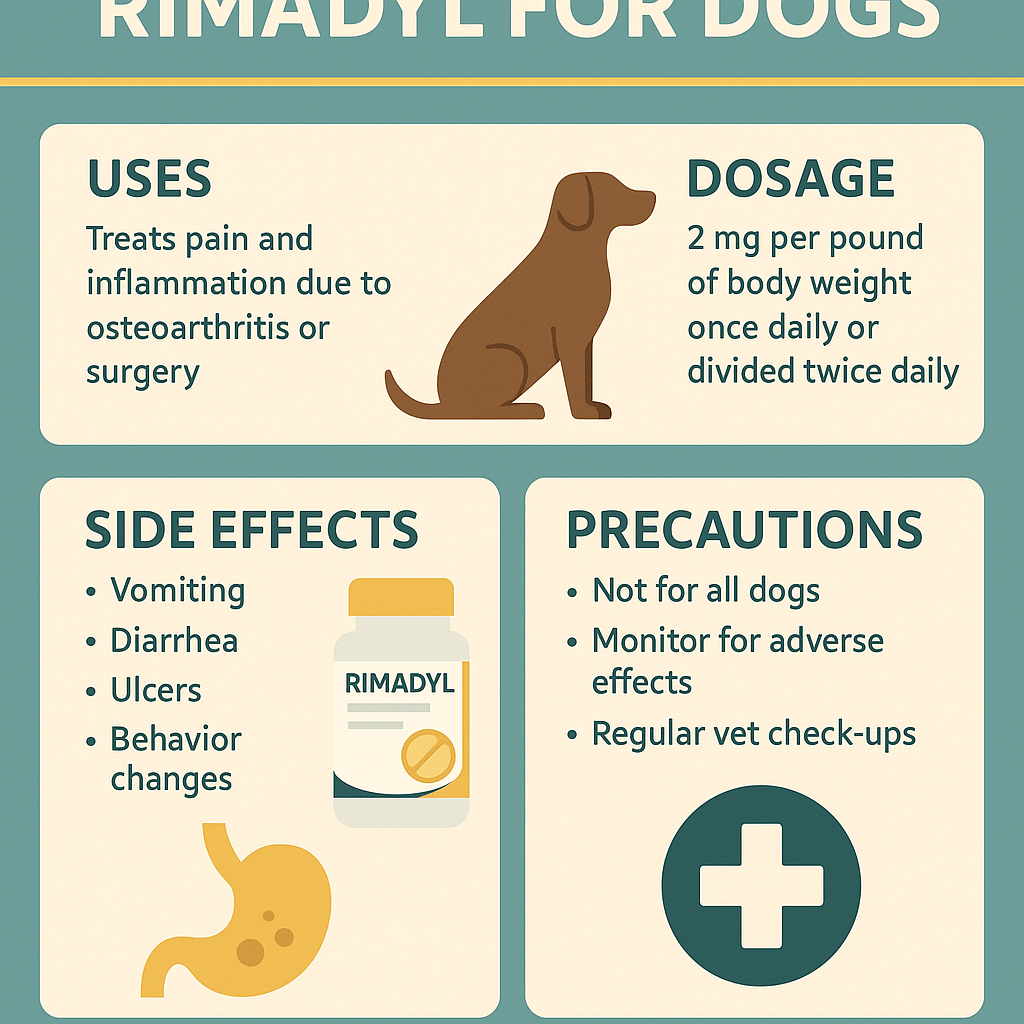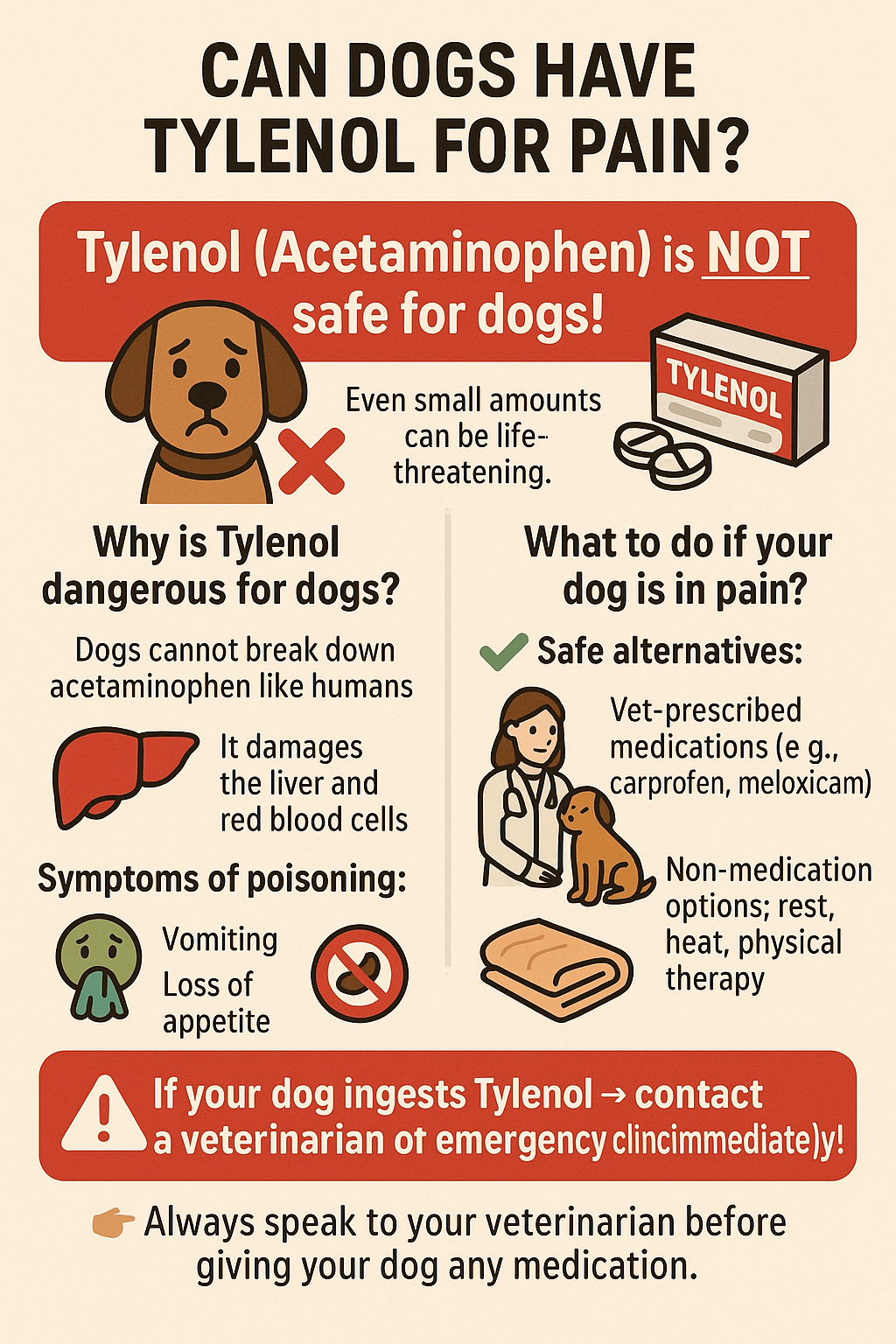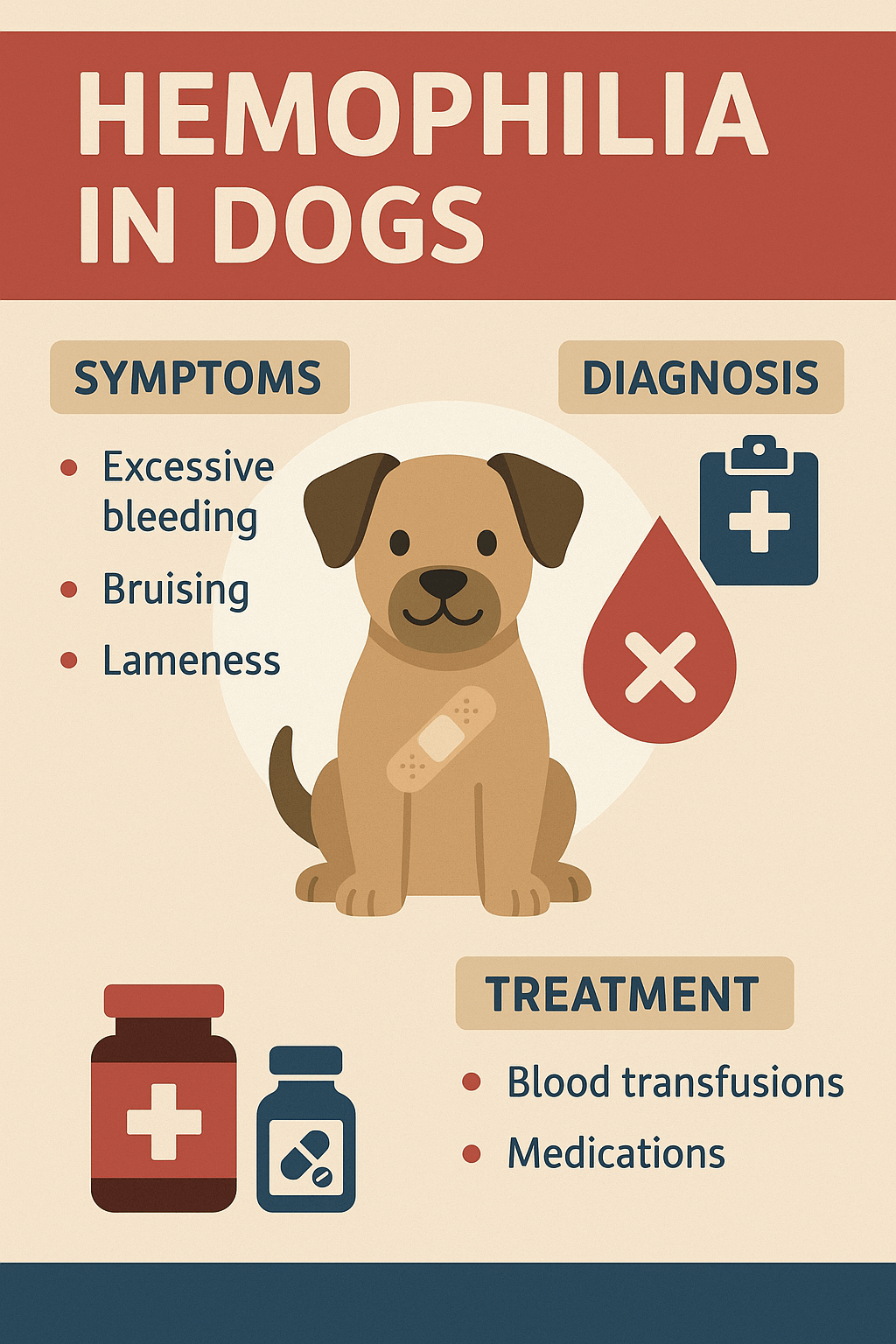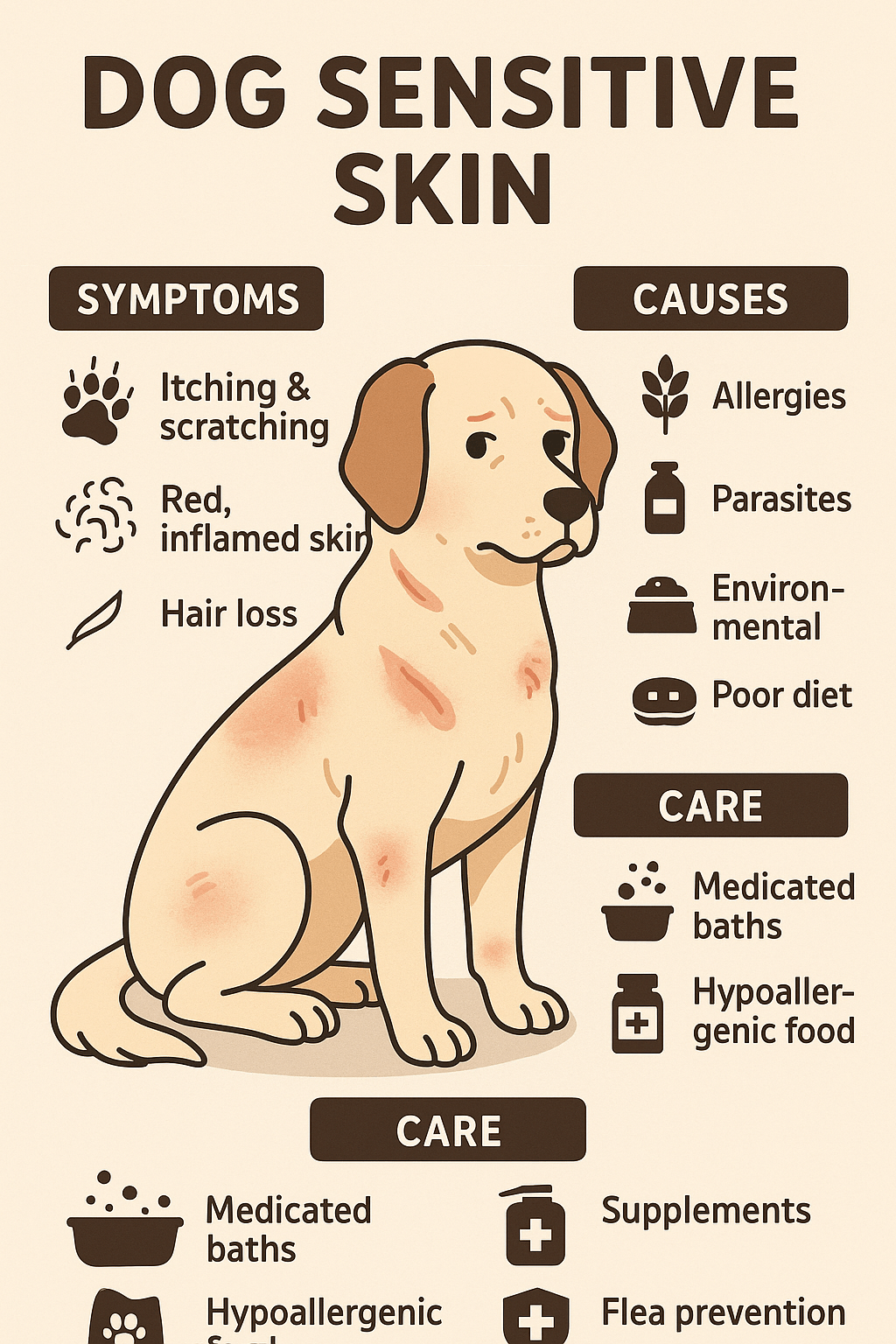Bouvier des Flandres: A Majestic Working Dog Breed
The Bouvier des Flandres is a striking and versatile working dog breed known for its intelligence, loyalty, and rugged charm. Originating from the Flanders region of Belgium, this large, sturdy dog has a rich history as a herding and farmhand companion. With their distinctive shaggy coat, powerful build, and calm demeanor, Bouviers des Flandres have captured the hearts of dog enthusiasts worldwide. Whether you’re considering adding one to your family or simply curious about this remarkable breed, this blog post will explore everything you need to know about the Bouvier des Flandres—from their history and temperament to care tips and training advice.
Key Characteristics of the Bouvier des Flandres
The Bouvier des Flandres is a breed that stands out for its unique combination of physical traits and personality traits. Understanding these characteristics is essential for anyone interested in owning or learning more about this magnificent dog.
Size and Build:
Bouviers are large, muscular dogs with a robust frame. They typically stand between 23.5 and 27.5 inches tall and weigh between 65 and 110 pounds.Coat and Grooming Needs:
Their thick, weather-resistant double coat requires regular brushing to prevent matting and tangling. The coat can be fawn, black, brindle, or gray.Temperament:
Known for their calm and steady nature, Bouviers are affectionate with their families but reserved with strangers, making them excellent watchdogs.Intelligence and Trainability:
This highly intelligent breed excels in obedience and agility training, though they can sometimes display a stubborn streak.Lifespan and Health:
Bouviers generally live 10 to 12 years. They are prone to certain health issues like hip dysplasia and heart conditions, so regular vet check-ups are crucial.
These defining traits make the Bouvier des Flandres a loyal and capable companion, but they also require an owner who understands their needs and can provide proper care.
Caring for a Bouvier des Flandres: Essential Tips
Owning a Bouvier des Flandres comes with responsibilities that go beyond basic pet care. Here are some key considerations to ensure your furry friend thrives in your home.
Diet and Nutrition:
Feed your Bouvier high-quality dog food formulated for large breeds to support their active lifestyle and maintain a healthy weight.Exercise Requirements:
These energetic dogs need at least an hour of exercise daily, including walks, playtime, and mental stimulation activities.Grooming Routine:
Regular grooming sessions are vital to manage their dense coat. Professional trimming every few months can help keep it tidy.Socialization Needs:
Early socialization is critical to ensure your Bouvier grows into a well-rounded adult who interacts confidently with people and other animals.Mental Stimulation:
Provide puzzle toys, obedience training, and interactive games to keep their sharp minds engaged and prevent boredom-related behaviors.
By addressing these care essentials, you’ll create a happy and harmonious environment for your Bouvier des Flandres.
Check this guide 👉The Romanian Carpathian Shepherd Dog: Best 7 Expert Tips!
Check this guide 👉Basenji Dog Size: Best 7 Expert Tips!
Check this guide 👉Caucasian Shepherd Dog Lifespan: Best 7 Expert Tips!
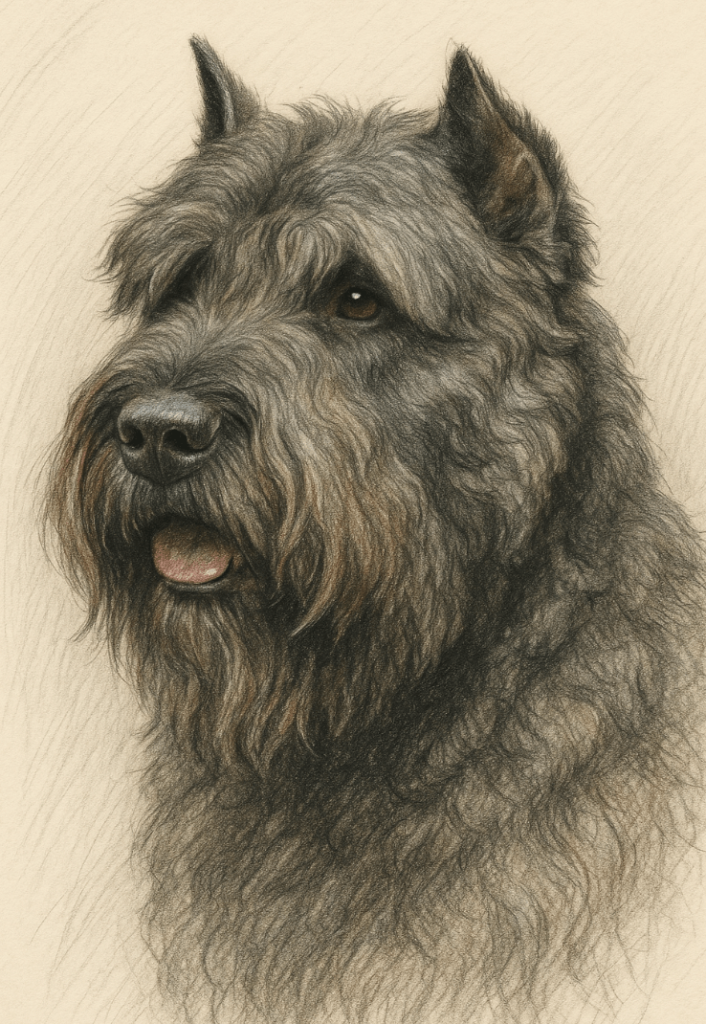
Pros of Owning a Bouvier des Flandres | Cons of Owning a Bouvier des Flandres |
|---|---|
Loyal and protective family companion | Requires significant grooming effort |
Intelligent and easy to train | Prone to certain health issues |
Versatile for various roles (herding, etc.) | Needs plenty of physical activity |
Calm and gentle indoors | Can be stubborn during training |
Excellent watchdog abilities | Large size may not suit small homes |
Training Your Bouvier des Flandres
Training a Bouvier des Flandres is both rewarding and challenging due to their intelligence and independent nature. Here are some tips to help you succeed in raising a well-behaved dog.
Start Early:
Begin training and socialization as a puppy to establish good habits and prevent behavioral issues later in life.Use Positive Reinforcement:
Reward-based methods work best with this breed. Treats, praise, and playtime are effective motivators.Be Consistent:
Bouviers thrive on routine and clear expectations. Consistency in commands and rules helps them understand what’s expected.Address Stubbornness:
If your Bouvier shows resistance, remain patient and firm. Avoid harsh corrections, as they respond poorly to negativity.Incorporate Variety:
Keep training sessions engaging by mixing up exercises and incorporating new challenges to hold their interest.
With dedication and patience, training your Bouvier des Flandres can strengthen your bond and bring out their best qualities.
Health Concerns to Watch For in Bouviers des Flandres
Like all breeds, Bouviers des Flandres are predisposed to certain health conditions. Being aware of these potential issues allows you to take preventive measures and seek timely veterinary care.
Hip Dysplasia:
A common condition in large breeds where the hip joint doesn’t fit properly, leading to arthritis or mobility issues.Elbow Dysplasia:
Similar to hip dysplasia, this affects the elbow joints and can cause lameness or discomfort.Heart Conditions:
Some Bouviers may develop congenital heart defects, so regular cardiac screenings are recommended.Eye Problems:
Conditions like cataracts or glaucoma can affect vision, requiring prompt diagnosis and treatment.Gastric Torsion (Bloat):
This life-threatening condition occurs when the stomach twists, often after eating large meals too quickly.
Proactive care and regular vet visits can help mitigate these risks and ensure your Bouvier enjoys a long, healthy life.
Activities That Suit the Bouvier des Flandres
Bouviers are versatile and energetic dogs that excel in various activities. Engaging them in these pursuits can enhance their physical and mental well-being.
Herding Trials:
As natural herders, Bouviers enjoy participating in herding competitions, showcasing their instincts and skills.Agility Courses:
Agility training provides both physical exercise and mental challenges, keeping your Bouvier sharp and fit.Obedience Competitions:
Their intelligence and eagerness to please make Bouviers ideal candidates for obedience trials.Therapy Work:
With their calm demeanor, Bouviers can serve as therapy dogs, bringing comfort to those in need.Long Walks and Hikes:
Exploring nature together satisfies their need for adventure and strengthens your bond.
These activities cater to the Bouvier’s active lifestyle while fostering a deeper connection between you and your dog.
Common Misconceptions About Bouviers des Flandres
Despite their popularity, there are several misconceptions about Bouviers des Flandres that deserve clarification.
They Are Not Low-Maintenance Dogs:
Their grooming needs and exercise requirements mean they demand significant time and effort.They Aren’t Always Aggressive Guard Dogs:
While protective, Bouviers are more likely to bark a warning than act aggressively without cause.Their Size Doesn’t Mean They Need a Farm:
Though historically farm dogs, Bouviers adapt well to suburban or urban living with sufficient exercise.They Don’t Thrive Without Socialization:
Without early exposure to different environments, Bouviers may become overly shy or anxious.They Aren’t Just “Working Dogs”:
While bred for labor, Bouviers make wonderful family pets with the right care and attention.
Understanding these truths helps set realistic expectations for potential owners.
Tips for First-Time Bouvier Owners
If you’re new to the Bouvier des Flandres breed, these tips will help you navigate the joys and challenges of ownership.
Prepare for Grooming Commitments:
Invest in quality grooming tools and schedule regular appointments to keep their coat in top condition.Establish Boundaries Early:
Set clear rules and boundaries from day one to prevent unwanted behaviors like jumping or pulling on the leash.Prioritize Exercise:
Ensure your Bouvier gets enough physical activity to prevent destructive behavior caused by pent-up energy.Seek Professional Training Help if Needed:
If you struggle with training, consult a professional trainer experienced with large, intelligent breeds.Join a Community of Bouvier Enthusiasts:
Connecting with other Bouvier owners provides support, advice, and opportunities for socialization.
Following these tips will set you and your Bouvier up for success, ensuring a fulfilling relationship for years to come.
Frequently Asked Questions About Bouviers des Flandres
Are Bouviers des Flandres good family dogs?
Yes, they are affectionate, loyal, and protective, making them excellent companions for families with older children.
How much exercise does a Bouvier need?
Bouviers require at least one hour of exercise daily, including walks, playtime, and mental stimulation.
Do Bouviers shed a lot?
While they don’t shed excessively, their thick coat requires regular grooming to manage shedding and prevent matting.
Are Bouviers aggressive?
No, they are naturally calm and gentle, though their protective instincts may make them wary of strangers.
What is the lifespan of a Bouvier des Flandres?
Bouviers typically live 10 to 12 years, depending on their overall health and care.
Why Choose a Bouvier des Flandres?
The Bouvier des Flandres is a remarkable breed that combines strength, intelligence, and loyalty in one impressive package. Whether you’re looking for a devoted family companion, a hardworking partner, or a loving friend, the Bouvier has much to offer. However, owning this breed requires commitment, patience, and a willingness to meet their physical and emotional needs. By providing proper care, training, and attention, you’ll be rewarded with a lifetime of love and devotion from your Bouvier des Flandres. If you’re ready for the challenge, this majestic dog could be the perfect addition to your home.
Rimadyl for Dogs: Best 7 Expert Tips! Discover expert advice on using Rimadyl safely, managing pain, and improving your dog’s mobility with trusted veterinary insights.
Can Dogs Have Tylenol for Pain? Best 7 Expert Tips! Discover the risks, safe alternatives, and expert advice on managing your dog’s pain effectively while avoiding harmful medications.
Understanding Hemophilia in Dogs: Best 7 Expert Tips! Discover expert advice on managing hemophilia, recognizing symptoms, and ensuring your dog’s well-being with practical care strategies.
Understanding Dog Sensitive Skin: Best 7 Expert Tips! Discover expert advice on managing dog sensitive skin, relieving irritation, and improving your pup’s comfort with practical solutions.

